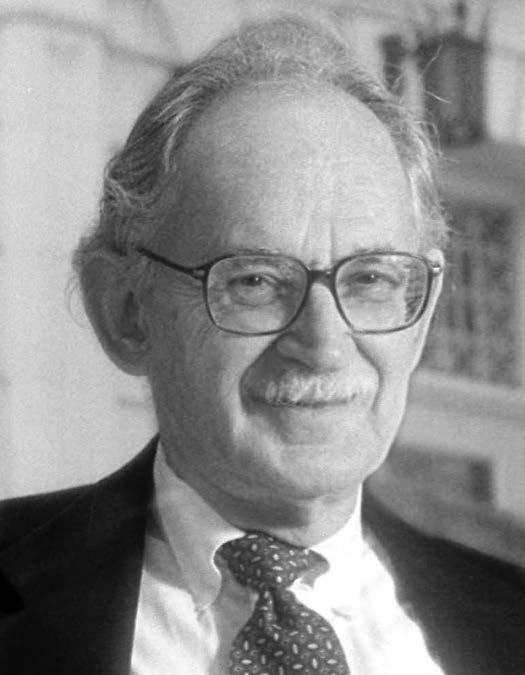 Professor Allen J. Bard was born in New York City and attended public schools there, including the Bronx High School of Science. He attended The City College of New York (BS, '55) and Harvard University (MA, '56, PhD, '58), working with James J. Lingane. He joined the faculty at The University of Texas at Austin (UT) in 1958.
Professor Allen J. Bard was born in New York City and attended public schools there, including the Bronx High School of Science. He attended The City College of New York (BS, '55) and Harvard University (MA, '56, PhD, '58), working with James J. Lingane. He joined the faculty at The University of Texas at Austin (UT) in 1958.
Essentially all of Dr. Bard’s research has been carried out at UT-Austin, where he has held the Hackerman-Welch Regents Chair in Chemistry since 1985. The vast majority of his research has been done in collaboration with the numerous graduate students and postdoctoral associates that have worked in his laboratories during his 40 years at the University of Texas. At UT he has mentored and collaborated with 73 PhD students, 16 MS students, over 130 postdoctoral associates, and numerous visiting scientists. He has always helped his junior colleagues to attain their maximum level of achievement both in his laboratories and afterwards. A large number of his group alumni have gone on to develop independent research careers. Known for the broad scope of his research, Professor Bard – who co-discovered the phenomenon of electrogenerated chemiluminescence (ECL) in the late sixties - developed ECL into a highly sensitive and selective technique for biological applications, such as immunoassay. This technology has been commercialized by IGEN and others, and is widely used in clinical laboratories. Additionally, while developing much of the theoretical understanding of the electrochemistry involved in photoelectrochemistry, he has demonstrated that the semiconductors need not be highly pure, single-crystal materials.
Professor Bard has received numerous well-deserved honors and awards, including election to the National Academy of Sciences in 1982. A small sample of awards include the Carl Wagner Memorial Award (The Electrochemical Society), the Fisher Award in Analytical Chemistry (American Chemical Society), the Charles N. Reilley Award
(Society of Electroanalytical Chemistry), Docteur Honoris Causa (Universite de Paris-VII), the New York Academy of Sciences Award in Mathematics and Physical Sciences, the Willard Gibbs Award (American Chemical Society, Chicago Section), the EAS Award in Electrochemistry, the Olin-Palladium Medal (Electrochemical Society), the Analytical Chemistry Award in Electrochemistry (American Chemical Society), the Luigi Galvani Medal (Societá Chimica Italiana), the Priestley Medal (American Chemical Society), the Pauling Award (American Chemical Society, Puget Sound and Portland Sections), the National Academy of Sciences Award in Chemical Sciences and the Pittsburgh Analytical Chemistry Award. He was named The Woodward Professorship at Harvard University and the Sherman Mills Fairchild Scholar at California Institute of Technology.